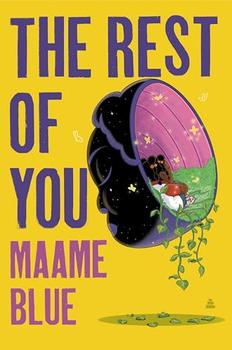Summary | Excerpt | Reviews | Beyond the Book | Readalikes | Genres & Themes | Author Bio

Kumasi, 1995
Gloria
Gloria felt the full possibility of the day in her body. Until now things had been heavy, as if she carried weights on her back and chest. She would wake up every day with this feeling of being underneath her grief. It had lightened a little every year since Bobo was born, but finally she felt things shift properly. Perhaps because she really wanted to remember this day, the first in a long time that Paa Kweku had requested a meeting with her. Just the two of them.
"There's something I want to tell you. Can I pass by later today?"
"I'll come to you."
Gloria had replied quickly as he stood outside the gate, suddenly too shy to step through the opening as he had many times before. But it was early in the morning, he was on his way to Holy Grace Church, and she was not properly dressed. They said their goodbyes, and she listened to his footsteps fade away as the guard closed the gate behind him. She tried to tell herself that Paa Kweku's request meant nothing, that she had not been hoping for it or something like it for many years, even after he had pledged himself to a life of godliness.
She had always known he would take that path, and once they became teenagers, he went away for a handful of years to train in a seminary in Ejisu. During his stay, they wrote many letters to each other; he told her about his daily life, how different and difficult it was there, how he missed home and the taste of his mother's cooking. And that he often wished he could walk over to the Sarpongs' home for the Friday night meal, a coveted get-together that only happened when Daddy returned to Kumasi from overseas, shedding his moniker of Sergeant Sarpong for them, and went back to just being a father to his three daughters. Paa Kweku was the only guest allowed who wasn't a blood relative, and Daddy reminded him often that when he was away, Paa Kweku was to be his eyes and ears, watching over Gloria, Aretha, and Tina. Paa Kweku did not take the responsibility lightly.
But once he had taken his vows, things inevitably changed. He was still close with the family, but the expectation that he and Gloria would get married flitted away into nothingness. It wasn't a question of permission—his faith was such that he could get married, but he was just not sure that he wanted to, that perhaps it would compromise his ability to devote himself fully to God. That was what he had told his best friend at the time, who happened to be Gloria. That day was burned into her memory, the flames of it still licking at her every so often. She had no scars from it—just open, tender wounds every time he came by the house to see her, to go with her to the market, or to simply sit in the pews on Sunday after service, talking about the week behind them and the one ahead. She would grab at all those moments, becoming used to having fractions of him at a time, even if most people thought waiting for him was a fruitless venture.
At twenty-nine, she was the eldest, tasked with taking care of the family when Daddy wasn't around. Mommy—Ruth—had given birth to the youngest of them, Tina, and then rejoined God in heaven one week later. Aretha was two years old at the time; Gloria was eight. Daddy wouldn't entertain the notion of remarrying, despite pressure from the wider family. Gloria thought perhaps he was married to his work, as her American cousins might say. She did not like to think that he had always been that way, even when Mommy was alive. But she was older now, and she knew him well. She knew what he was and what he could never be. He found it difficult to be present, to stay home for too long. So she worked hard to fill those gaps. Her sisters were too young to know what they were missing; only Gloria had full, bulbous memories of Mommy.
She returned regularly to the memory of Mommy teaching their house girl, Maame Serwaa, how to make kontomire stew the Sarpong way, using fresh spinach from the garden, the best spices. She remembered the way Mommy would carefully do Gloria's cornrows when it was time to sleep, singing gospel songs to her as she sectioned out each piece of thick hair, soothing her scalp with shea butter. And sometimes Mommy would slip from loving the lord to crooning softly to Aretha Franklin's "I Never Loved a Man," the melody splashing into Gloria's sleepy mind, so that often as a child she dreamed the songs as if they were her real life. Mommy's love for soul music—the old and the new, the pitch-perfect voices that began in the church and ended up shaping rhythm and blues—was well documented. Once, Gloria had witnessed her parents slow dancing to the Supremes, late at night after returning home from a celebration of someone's life, thinking their children were asleep, that they finally had a moment to themselves.
Excerpted from The Rest of You. Reprinted with the permission of the publisher, Amistad, an imprint of HarperCollins. Copyrighted © 2024 by Maame Blue.
Your guide toexceptional books
BookBrowse seeks out and recommends the best in contemporary fiction and nonfiction—books that not only engage and entertain but also deepen our understanding of ourselves and the world around us.